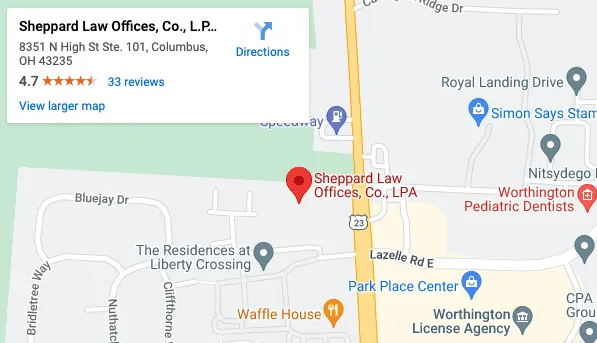It may sound daunting to plan for your death or the death of a family member, but it’s a crucial step in making certain that your loved ones are taken care of after you’re gone. An established estate plan ensures that your wishes are met, and your assets are managed and distributed properly after your passing. However, while important, estate plans are also complex and it can be challenging just to get started. Fortunately, professionals at Sheppard Law Offices can help. Our estate planning attorneys work with you to establish a comprehensive plan to deal with your assets and liabilities after your passing. Learn all about what you need to get started on your estate plan below!
Inventory Your Assets
A large part of estate planning is determining who inherits your assets after you’ve passed away. But before you begin doling out possessions, it’s important to know exactly what there is to distribute and how it’s characterized. You may be surprised by how much you have.
Your assets are broken down into tangible and intangible assets. Tangible assets are physical with a finite monetary value, such as cash, cars and buildings. Intangible assets are not physical, such as name recognition, copyrights, and patents. It’s important to take note of each asset and its designation during this time for future reference. Once you’ve determined your inventory, you need to estimate the value of each. For some items such as art or a building, an outside valuation can be beneficial. Once you’ve gathered a comprehensive list of your assets, you can continue with your planning
Consider Your Loved Ones’ Needs
The next step is taking into account what your family and loved ones will need moving forward. This takes a variety of factors into consideration, from general wellbeing to financial security.
- Evaluate your existing life insurance policy and financial situation- This is critical to ensuring that your family will be able to pay the bills once you’re gone. Many mortgages are based on dual incomes, and a sudden loss of one can leave your family in a precarious situation. A comprehensive life insurance policy will help make sure that your family will be comfortable should the worst happen.
- Determine a guardian for your children- Naming a guardian and a backup guardian is extremely important to ensuring that your children are well cared for in the event of your death. If your children do not have a legal guardian, they may end up in the foster system.
- Detail your instructions for your child’s continued care- You can’t assume that your child’s guardian will raise them exactly the way you would like them to. Well documenting your wishes for your child’s care will help make sure that they are raised the way you want them to be.
Determine beneficiaries
Your beneficiaries will inherit everything when you pass away, so it’s key to determine exactly who you’ll be leaving your assets to. While this is often denoted in your will, it’s important to note that some insurance and retirement accounts have beneficiary designations that you need to keep in mind. If you haven’t reviewed your beneficiaries since making big life changes such as having a child or getting married, it’s critical that you go through and update them.
Establish key documents and legal directives
The backbone of every estate plan is made up of key documents and sound legal directives. These include a variety of different records and institutions to ensure that your wishes are met, such as:
- A Will- This document allows you to state exactly who will inherit which assets, and name the guardian of any young children you have in the event that something happens to you and your partner.
- A Trust- A trust is often appropriate when dealing with larger estates, and allows your assets to be transferred to beneficiaries without the need for probate.
- Power of Attorney- Naming a power of attorney is important because they can make decisions for you if you are unable. It’s key that you choose someone you trust, and someone who will place your interests above their own, as is expected.
- Medical Directives- Medical directives explain your wishes for medical care should you be unable to express them. This can also include naming a medical or healthcare power of attorney to make decisions if you are incapacitated.
Consider hiring professional estate planning attorneys
Whether you have a small estate and simple wishes, or have a large estate with multiple residences, everyone can benefit from speaking with a professional. At Sheppard Law Offices, our Columbus estate planning lawyers work with you throughout the entire estate planning process, from identifying assets to writing key legal documents that will hold up in court. Contact our experienced team for a free consultation, and learn all about how we can help you with your will, probate and more.



